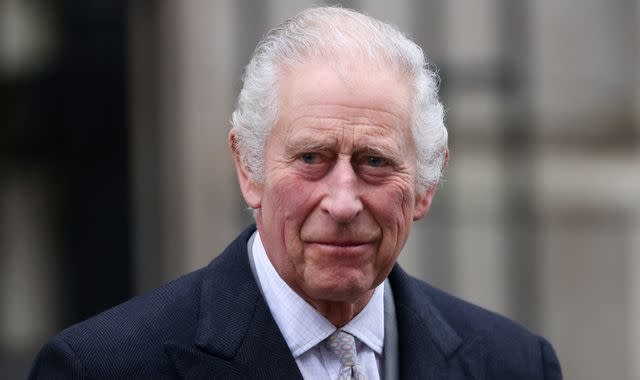King Charles's cancer diagnosis: What we know so far

The King has been diagnosed with a form of cancer, Buckingham Palace has announced.
The palace said the condition was discovered while the monarch was being treated in hospital for an enlarged prostate.
Here is what we know, and don't know, so far - and what it could mean for the other royals.
What cancer does the King have?
The palace has not specified what form of the disease the King has, but they have said it isn't prostate cancer.
They said during the monarch's recent procedure for a benign prostate enlargement a "separate issue of concern" was noted.
Further diagnostic tests have identified "a form of cancer".
Details of the type of test have not been divulged but diagnostic tests for cancer can involve blood tests, scans and biopsies.
A biopsy is a medical procedure that involves taking a small sample so it can be examined under a microscope to identify whether there are abnormal cells present.
"No further details are being shared at this stage, but His Majesty is receiving expert care and looks forward to returning to full public duty as soon as possible," a palace spokesperson said.
The day after the diagnosis was announced, the prime minister said it had been "caught early".
How is he being treated?
The King returned from Sandringham to London on Monday to start his treatment as an outpatient, meaning he will not have to stay in hospital.
"He remains at home in London this evening," the palace said on Monday night.
It isn't clear if he will be treated on the NHS or receiving private healthcare.
The monarch has begun a schedule of regular treatments and is said to be receiving expert medical care from a specialist team.
Read more from Sky News:
Full statement as palace reveals monarch having treatment
Why cancer is an individual disease
This could involve chemotherapy, a medicine used to kill cancer cells; radiotherapy, a treatment where radiation is used to kill cancer cells; or targeted drugs that find and attack cancer cells.
"His Majesty is grateful to his medical team for their expert care and swift intervention, is wholly positive about his treatment and looks forward to returning to full public duty as soon as possible," the palace added.
How will diagnosis affect King's work?
While the King receives treatment, it is understood he will still process state documents and hold his weekly audience with the prime minister.
However, the palace has confirmed "a number" of upcoming public engagements will be rearranged or postponed.
He has been advised by doctors to put off any public-facing plans.
"His Majesty would like to apologise to all those who may be disappointed or inconvenienced as a consequence," the palace said, adding the Queen "will continue with a full programme of public duties".
The monarch is also expected to remain available for meetings of the Privy Council, which usually meets monthly and is the oldest form of legislative assembly still functioning in the UK.
Read more:
Treatment is a private matter - but King's openness will bring focus to vital work
He approves proclamations through this body, formal notices covering issues such as the summoning of a new Parliament and the dates of certain bank holidays.
It's understood the details around how his duties will take place are yet to be confirmed.
The King's role in general elections will also be a focus, as Rishi Sunak has hinted he will send the country to the polls in the second half of this year.
The monarch dissolves Parliament before a general election.
What could this mean for other royals - including Prince William and Prince Harry?
It's possible that other working members of the Royal Family could take additional duties on behalf of the King, including Prince William.
The prince is currently helping the Princess of Wales recover from her surgery, but could take on more work once he is back to full public duty.
It's understood the King personally told all his siblings and children he has cancer, and Harry has already confirmed he will head to the UK in the coming days.
The Queen is expected to support the King throughout his treatment alongside her full programme of duties.

 Yahoo News
Yahoo News 
